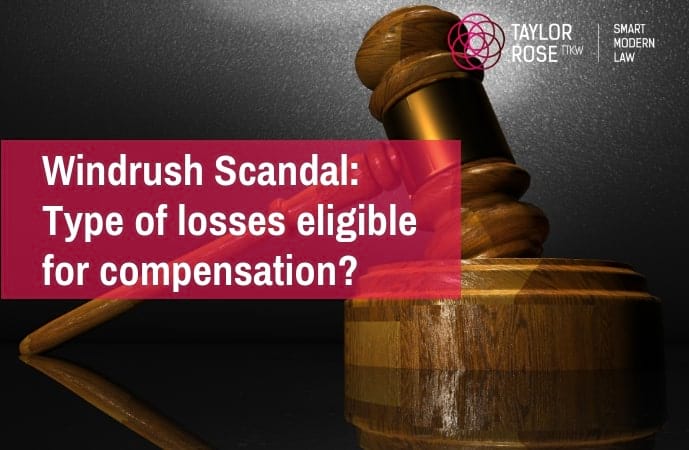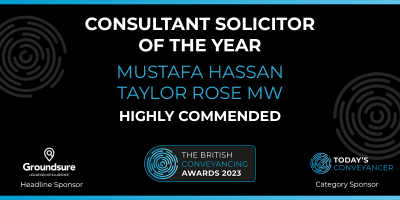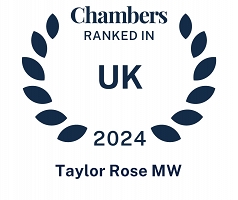Blogs
The Windrush Scandal: What losses will be compensated?

MARK QUINN >
Consultant Partner
Wed 31 October 2018
My previous blog looked at the eligibility criteria for Windrush compensation and provided some examples of who might be eligible. The question now turns to the second core element of the consultation and specifically the question as to what types of losses will be recoverable by way of compensation.
Losses
Having previously launched a call for evidence, the Home Office set out a table (below) of its initial findings. This covers categories of impacts suffered alongside the number of responses:
|
Emotional distress |
403 |
68% |
|
Direct costs related to confirming correct immigration status |
368 |
62% |
|
Loss of income (including loss of employment and access to benefits) |
367 |
62% |
|
Inability to travel |
153 |
26% |
|
Access to public services |
141 |
24% |
|
Access to infrastructure |
50 |
8% |
|
Detention and/or removal |
39 |
7% |
|
Total Respondents |
592 |
|
The above table gives us an early (albeit loose) indication of the potential heads of damage which could make up the basis of a “Windrush claim”. ‘Emotional Distress’ appears at the top of the list and might well be the most difficult head of loss to quantify and assess.
Within the consultation paper, the Home Office sets out more specific categories for the different types of losses which could be included:
- Costs associated with confirming immigration status
- Fees
- Incidental costs
- Legal costs
- Loss of income (due to being unable to provide evidence of lawful immigration status)
- Employment
- Statutory benefits
- Detention, removal and travel
- Denial of exit or re-entry to the UK
- Denial of access to public, private and other services (including NHS services, housing, driving licence etc.)
- Impact on normal daily life (will likely cover anything from mild stress to significant mental and physical health issues).
The potential heads of loss are wide-ranging and diverse. The consultation paper makes it clear the Home Office seeks feedback, not limited to the types of losses, but also in terms of the relative scale. This is to ensure that payments are relative and proportionate to the significance of the various losses.
It is imperative, therefore, that any feedback is provided to the Windrush compensation consultation in advance of the closing date of 16 November 2018. As Martin Forde QC (the independent adviser on the design of the scheme) put it:
I would urge as many people as possible from all backgrounds and interests to participate constructively in this consultation. The more detailed and considered the consultation responses the better the chances of designing a fair and comprehensive scheme.
Mark Quinn is a consultant solicitor with Taylor Rose TTKW specialising in civil litigation and dispute resolution. Should you wish to discuss any of the issues within this article or require his advice, do not hesitate to contact him on 01733 865 136 or mark.quinn@taylor-rose.co.uk





















